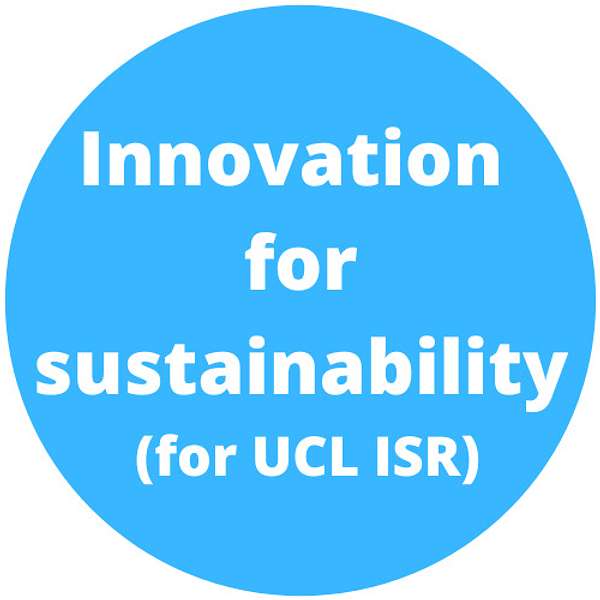
Innovation for sustainability (for UCL Institute for Sustainable Resources Masters)
Innovation for sustainability (for UCL Institute for Sustainable Resources Masters)
David Hunter
Use Left/Right to seek, Home/End to jump to start or end. Hold shift to jump forward or backward.
David Hunter is Senior Counsel at Bates Wells, a purpose-driven law firm (David's corporate page and LinkedIn). David has a specialism in purpose-led organisations, including on fiduciary duty, social impact bonds and governance. Bates Wells itself was the first UK law firm to become a B-Corp, the certification scheme on for-benefit organisations, and has long been an advocate for purpose-led organisations.
Our conversation covers a lot of what Indy Johar of Dark Matter Labs calls the 'boring revolution' -- the vital work of getting legal and governance regulations and practice to align with generating a sustainable world.
Some of the specifics:
-The Bates Wells Sustainability and Responsibility Pledge.
-How much large businesses in particular rely on in-house counsel or external law firms to make sure they can say they are on the right side of the law. A company, or an individual, can be at legal jeopardy and/ro no longer be covered by insurance if they can be shown to be negligent (rather than unlucky or being a bit rubbish but in good faith).
-The thorny issue of providing professional services to existing companies who are not aligned with the Paris Agreement or the SDGs.
-The emerging area of 'Advised Emissions', where a professional service firm understands, and can be accountable for, the climate impact of its advice through its clients.
-Using the idea of Advised Emissions to shape more and more of how the profession engages with that question, so a company can't just ignore your concerns and move on to the next lawyer. Leading to the formation of the UN High-level Climate Champions' Race to Zero Working Group on Net Zero for Professional Service Providers here.
-The reluctance to pursue much-needed sectoral collaborations because of fears about uses of anti-competitive laws (in the US known as anti-trust laws).
-The myth that fiduciary duty (the duty that the management of a company have to the owners) means always having to maximise profits, rather than satisfying shareholders on returns. This expands the options companies have for their business strategies, commercial tactics, employment practices, supply chain conditions and more.
-Gettng a court ruling saying that charities can focus their investments on sustainability outcomes.
-The importance of contracts as the necessary 'plumbing' of business interactions, and so how important the terms within contracts are in giving businesses choices in behaviour.
-All this legal innovation is necessary for the all other innovation for sustainability.
This is part of a series of interviews about innovation for sustainability conducted for the UCL Institute for Sustainable Resources, as a contribution to a module in this Masters. You can find out more about these interviews, and the module, here.